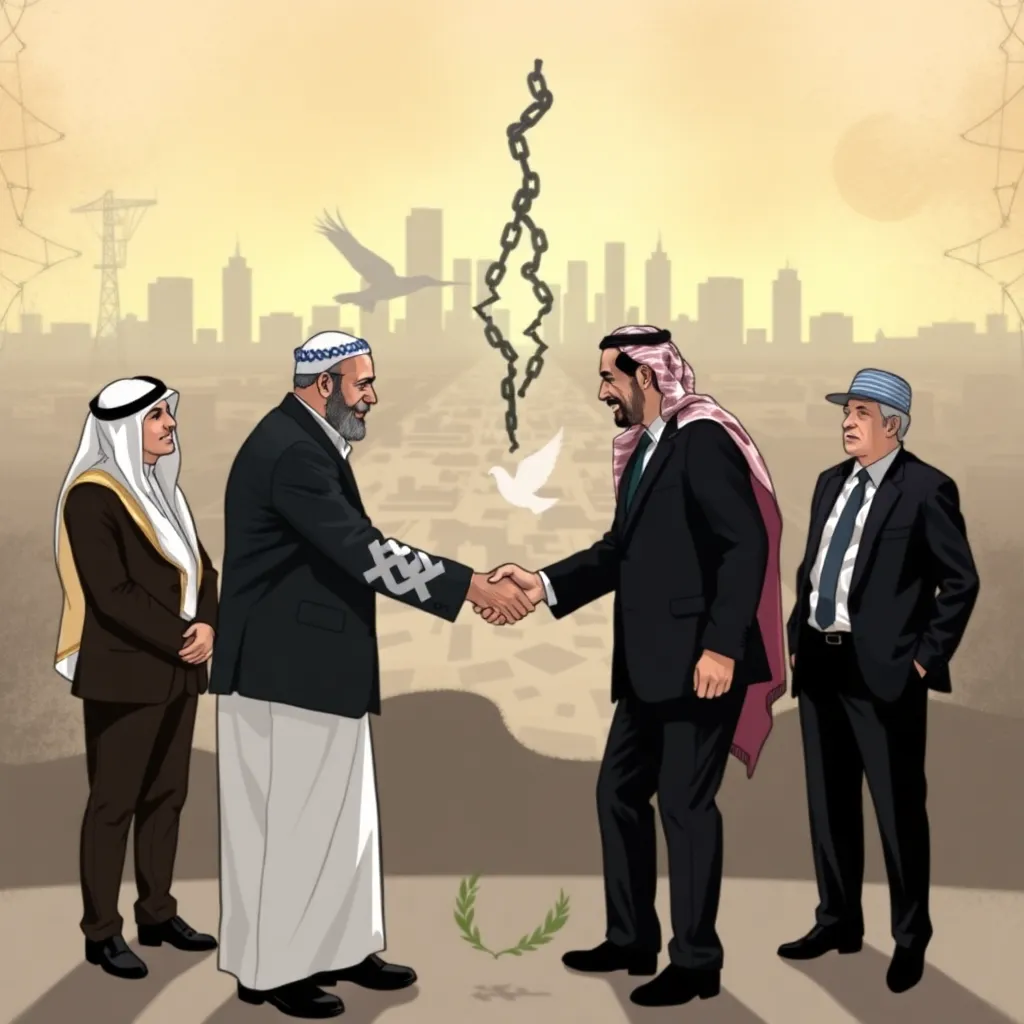
Gaza Ceasefire Deal Agreed by Israel and Hamas: A New Era of Peace?
After 15 months of brutal conflict, a glimmer of hope has emerged in the Middle East as Israel and Hamas have agreed to a Gaza ceasefire and hostage release deal, brokered by mediators Qatar and the United States. This breakthrough agreement has the potential to bring a measure of stability to the region and pave the way for a more lasting peace.
The deal, announced by Qatari and US officials, marks a significant shift in the dynamics between Israel and Hamas, which have been locked in a cycle of violence and recrimination for over a year. The conflict has resulted in thousands of casualties, widespread destruction, and a crippling blockade that has left Gaza’s economy in shambles.
While the terms of the agreement have not been fully disclosed, it is believed to involve a mutual ceasefire, the release of hostages held by Hamas, and the easing of restrictions on the movement of people and goods in and out of Gaza. These concessions have the potential to significantly improve the lives of Gazans, who have been living under siege for years.
The role of Qatar and the US in brokering the deal cannot be overstated. Qatar, in particular, has been instrumental in facilitating dialogue between Israel and Hamas, leveraging its close ties with both parties to bring them to the negotiating table. The US, meanwhile, has provided critical support and backing for the negotiations, helping to create an environment conducive to a deal.
The agreement has been welcomed by international leaders, who see it as a vital step towards reducing tensions in the region and creating a more stable environment for peace talks. The European Union, in particular, has praised the deal, calling it a “positive development” that could help to “reduce violence and improve the humanitarian situation in Gaza”.
However, not everyone is optimistic about the deal’s prospects. Some critics have expressed concerns that the agreement may not hold, given the deep-seated animosity between Israel and Hamas. Others have pointed out that the deal does not address the underlying issues driving the conflict, such as the Israeli blockade of Gaza and the dispute over Palestinian statehood.
Despite these challenges, the Gaza ceasefire deal represents a crucial step forward in the pursuit of peace in the Middle East. It demonstrates that, with the right diplomatic efforts and international support, even the most seemingly intractable conflicts can be resolved. As the region looks to the future, one thing is clear: this deal has the potential to be a game-changer, and its success will depend on the willingness of all parties to work towards a lasting peace.





